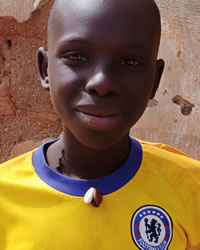Mundat in Nigeria

Photo Source:
Anonymous
|
Send Joshua Project a map of this people group.
|
| People Name: | Mundat |
| Country: | Nigeria |
| 10/40 Window: | Yes |
| Population: | 2,200 |
| World Population: | 2,200 |
| Primary Language: | Mindat |
| Primary Religion: | Ethnic Religions |
| Christian Adherents: | 30.00 % |
| Evangelicals: | 3.00 % |
| Scripture: | Portions |
| Ministry Resources: | Yes |
| Jesus Film: | No |
| Audio Recordings: | No |
| People Cluster: | Chadic |
| Affinity Bloc: | Sub-Saharan Peoples |
| Progress Level: |
|
Introduction / History
The Mindat are located in only one village. The name Mindat is derived from a phrase in Hausa "Mu kaura" meaning "we migrate".
Where Are they Located?
The Mindat are found in the Mindat village in Sha District of Bokkos Local Government Area (LGA) of Plateau State, Nigeria. This group is geographically isolated in an uphill rough terrain. They are surrounded by rocks, mountains and hills.
They traced their origin to Lake Chad. From Lake Chad, they moved to Bauchi, then followed an Abuja road to Wullam in Sha area. However, due to war, they decided to settle in the rocks. The people are surrounded by rocks in their present location. They believe that the rocks serve as their fortress. They estimated their population at 2,000.
What Are Their Lives Like?
They have good relationship with their neighbours: Duhwa, Sha, Kulere, and Atoro (Turkwan). They prefer to intermarry with the Duhwa and Sha. They feel reluctant to marry from the Kulere in Ambul area.
The people celebrate a festival called Madur. They entertain themselves with the muser (a native flute) and they drink ngut (a locally brewed beer).
The artifacts peculiar to them are: awenz (a big traditional drum), akpinkpin (small traditional drum) and makand (a tribal mark given to females from age 7).
As farmers, the Mindat cultivate fonio, maize, carrot and Irish potato. Their major crop is fonio.
What Are Their Beliefs?
The majority of the Mindat are Christian. Only a few are Muslim.
What Are Their Needs?
There are primary schools and churches in their community, but there is no market and clinic. Due to the terrain of the area, it is a hassle with vehicles, especially during the rainy season when only motorcycles are their primary means of transportation.